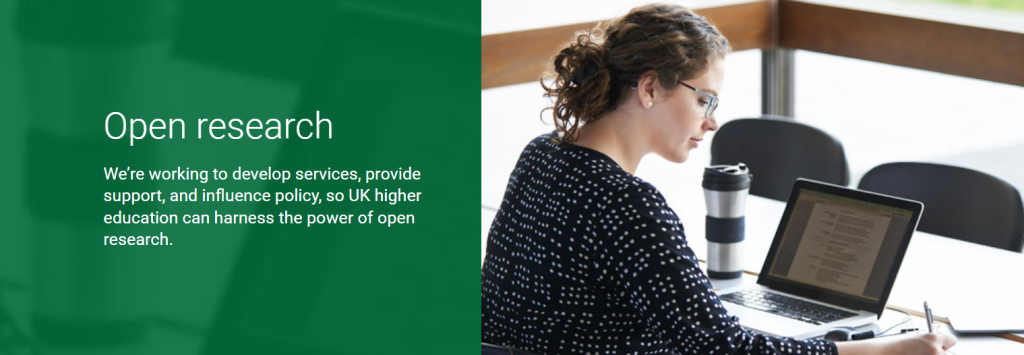As part of our work with UKRI to support the implementation of the UKRI open access policy for monographs, book chapters and edited collections published from 1 January 2024, we re-visited some of the key areas of concern for researchers that surfaced during the consultation period for the policy (see UUK Open access and monographs. Evidence review and Open access and monographs: Where are we now? A position paper by the British Academy).
There was a clear need for a focused period of engagement with key stakeholder groups such as researchers/academics across all career levels, librarians/scholarly communication managers, research offices, and rights holders, with the aim being to split the real issues from the perceived problems. As a result, we collaborated with a number of UK university presses and the Open Access Books Network to hold a series of webinars on the subject of the myths around open access for books, as well as to address legitimate concerns and suggest ways to remove barriers to open access publishing.
We held three 90-minute webinars, each consisting of three short presentations from a panel including authors, publishers, open access publishing support services and policy makers. These were then followed by a Q&A session where audience questions were invited. All sessions were chaired by an expert in the field of open access.
The opening session set the context and covered the key themes, and this was then followed by more focused sessions covering specific areas in more detail. You can find all the event recordings, transcripts, presentations, and our panels’ responses to the questions we didn’t have time to cover on our Events webpage and also via the links below.
Webinar 1. Compliance vs. culture
Our opening webinar looked at the wider benefits of open access for books. Open access is not the goal for its own sake, rather, it is the means by which the value of every piece of research is maximised in terms of how it can be accessed by everyone, and also how it can be used and reused to further the conversation in new ways. Policy and compliance are means to achieve this wider goal of effective and barrierless scholarly communications.
One of the key messages of this session was the need for engagement between different stakeholders in order for all parties to fully understand open access and its implications, and to come to a mutually beneficial position. There were key takeaways for attendees, one of whom said,
“Excellent information and debunked some myths too – I now have lots of information to inform my own local training with researchers!”
Webinar 2. Quality and prestige
The second webinar looked at questions around quality and prestige in relation to new formats and new publishers. Open access and the rise of new university presses and scholar-led publishers are often confronted by perceptions of a lack of professionalism and quality. These concerns are sometimes expressed by academics, sometimes by those working in publishing, and, less often, by librarians. It is also common for these views to be expressed explicitly, such as by direct comparisons with self-publishing or vanity publishing.
However, well-established publishers who have an open access route have repeatedly gone on record to emphasise that there is no difference between the book proposal and production workflows between open access and more traditional routes to publishing.
Peer review itself can be an opaque process for book publishing (although transparency of peer review processes is a requirement for inclusion in the Directory of Open Access Books). Likewise, prestige is an issue faced by any new publisher or imprint. Indeed, prestige can be very discipline specific – a high prestige publisher in one discipline may be, at best, less well thought of in another. Attendees particularly enjoyed hearing the differing perspectives from the presenters and felt that,
“…The level it was pitched at was really useful – down to Earth and normal, whereas some publishing webinars are pseudo intellectual and hard to follow. Everybody’s questions were asked, so it felt friendly and inclusive.”
Webinar 3. Copyright and third party rights clearance
Our final webinar looked into the perceived issues surrounding protection of copyright and use of third party content in open access publications, which are often cited as significant barriers to authors in certain sectors, making open access publishing very difficult. This session discussed how open access publishing brings no different challenges here than commercial models, and also that copyright and third party rights clearance are really two sides of the same issue – ensuring the rights of the content creator/owner are respected.
The session went into detail on open access’ focus on protecting author copyright through the use of Creative Commons (CC) licences, and looking at how this works in practice. It also covered the use of third party owned content in open access publications, and explored the misconception that this also needs to be CC licensed rather than just using a rights retention statement. An attendee said that,
“All three speakers were knowledgeable and grounded in practical problems and solutions. I deal frequently with academics who try to tell me that seeking permission is not important, and publishers who tell me that authors need to do the research and permissions requests themselves. It was refreshing and reassuring to hear from people who treat this subject seriously.”
Conclusion
We would like to thank all of our chairs and speakers for their engagement, as well as the 750 participants over the three sessions for their thought provoking questions and comments. Webinar attendance was well over the sector average and we are proud to be using our platform to discuss the key issues in open access book publishing.
Claire Redhead, Executive Director of OASPA, who chaired the second webinar, said,
“I was delighted to be able to contribute on behalf of OASPA to this series of events which provided an important and timely dialogue around areas which are often still a concern for researchers. The webinars tackled some enduring misconceptions about open access publishing which are still lingering even two decades on, and gave some practical support on key issues.”
Finally, we would like to thank Kate Petherbridge at White Rose University Press for helping to develop the initial concept and outline of the webinar series.
Further information
For more information about these events, or our work supporting open access for books, please get in touch by emailing graham.stone@jisc.ac.uk.
Details of the UKRI open access policy requirements for longform publications can be found on the UKRI website.
Please also refer to the resources available at the OAPEN OA books toolkit and the OA Books network, which provides a space to engage in discussions, events and find helpful materials via the network.





One reply on “Supporting open access publishing for books: myth-busting webinars event summary”
[…] its launch. We were delighted to work with the OABN in the planning and delivery of our series of OA myth busting webinars in 2022, and to collaborate again on the webinar series ‘Collective funding models for OA […]